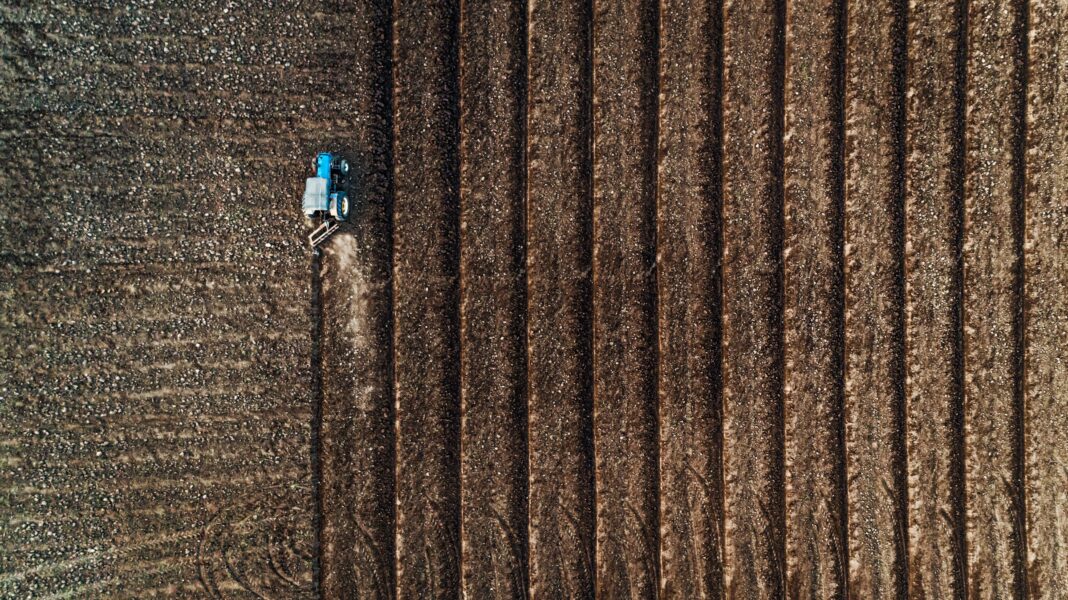The race to remove CO 2 from our atmosphere is on. In an effort to draw down carbon at a meaningful scale, people are looking to the ground. The top meter of the world’s soil holds over three times the amount of carbon currently in our atmosphere—and if we treat our land better, it could suck up even more.
This is good news for farmers. Companies and individuals desperate to offset their emissions by purchasing carbon credits are willing to pay farmers to use sustainable agricultural practices and sequester carbon in their fields. The problem? The process of verifying whether a field has sucked up additional carbon isn’t easy: Physical samples have to be regularly collected across the land and sent to a lab for processing.
Enter Perennial , a startup based in Boulder, Colorado, that says it has the answer. While studying at Brown University, chief innovation officer David Schurman met CEO Jack Roswell and president Oleksiy “Alex” Zhuk, passionate engineers from family farms in Michigan and Ukraine, respectively. When they got to Brown, they were surprised to discover that “agriculture as a whole was essentially forgotten” by technologists, says Zhuk.
Today, their ambition is to produce “the infrastructure that underpins the full vertical of the soil carbon market,” says Roswell. “No technology is solving a problem unless it’s solving the problem at scale and in a cost-effective manner,” says Roswell. “We’re actively monitoring every field for carbon removal and net emissions, in the US and beyond.
” Jim Kellner, a professor at Brown University and Perennial’s chief scientist, explains that the company’s technology relies on multispectral satellite imagery. This means measuring the reflected light from Earth in narrow bands across a broad range of the electromagnetic spectrum, capturing information that’s invisible to the human eye. Kellner says analyzing the spectrum of reflected light allows accurate identification of carbon in the soil, even using satellite images with a spatial resolution of only 10 meters.
By comparing the amount of light reflected at different wavelengths, “you can learn to identify materials, even without the picture,” he says. Satellite images are fed into a machine learning algorithm , along with environmental data about the field in question—such as elevation and climate—to produce a measurement of the soil’s carbon content. To train the algorithm accurately, the team gathered thousands of soil samples, digging holes in fields all across the US to calibrate their models for different climate conditions and types of crop.
By training their model on these representative physical measurements, the team enabled the algorithm to remotely quantify carbon in the ground. The company sees this as a critical step to unlocking the soil carbon market. “If you solve the problem of quantifying carbon but it’s dependent on sending someone into the field with a stake or shovel, you’re not going to reach global scale,” says Zhuk.
That’s all very well, but are farmers really willing to convert to sustainable agricultural practices and change how they grow food? Zhuk thinks the answer is yes. In the context of severe soil erosion worldwide, and the rising prices of chemicals for farms, he hopes Perennial will offer farmers the financial boost they need to move away from environmentally damaging practices and restore their land. “Our approach produces a standard measurement anywhere in the world—a farmer in Ethiopia that puts a ton of carbon in the soil will get recognized and paid the same as one in Iowa, transcending borders and inconsistent verification standards,” he says.
Right now, the company is working on training its algorithms in new countries and continents, as well as tackling new types of land—such as grazing and pasture lands—in addition to crop fields. Zhuk’s goal? “To move agriculture from just an industry that feeds us to an industry that is a major contributor to offsetting our emissions and reversing climate change. ”.
From: wired
URL: https://www.wired.com/story/perennial-carbon-capture-satellite/



